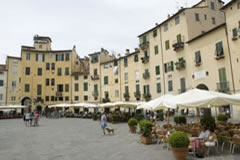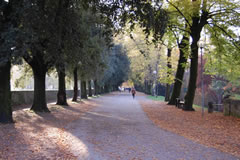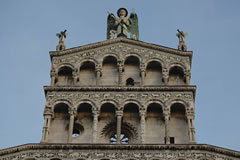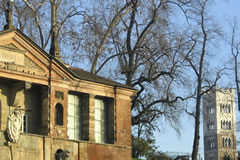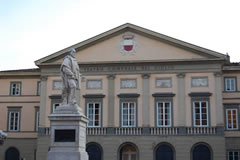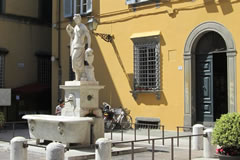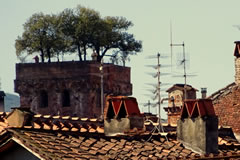WELCOME TO LUCCA
Lucca is a special town for countless reasons. Located 30 minutes from Pisa, an hour from Florence and a short bus or train ride from the sea, the mountains and the world famous Tuscan hills, Lucca is a perfect destination from which to see all the beauty of Tuscany.
Whether you are interested in nature and countryside or art and culture, it is the very soul of the city of Lucca that will capture your imagination. One of the many charms of this quintessential Italian city is that it has not been spoiled by mass tourism, and therefore still has plenty of opportunities for a visitor who wants to capture the "real" Italy.
Moreover, studying the Italian spoken in Tuscany, and especially in Lucca, you will learn one of the varieties of Italian language that is more similar to standard Italian.
Lucca is a hidden jewel; a treasure to be revealed and whoever discovers it cannot fail to remain enthralled. With roughly 90, 000 inhabitants, Lucca is big enough to satisfy cultural and shopping needs, but small enough to retain the authentic spirit of life in Italy.
With pre-Roman origins there are traces of the city’s age throughout Lucca. The main feature of Lucca and what makes it unique, are its walls. The old town is surrounded by four miles of walls - giving a stunning vantage point for cyclists, runners and walkers alike. A walk on the wall is an experience that alone is worth the trip, but many other wonders await visitors, including small traditional shops of the past which are still thriving today, great restaurants with local delicacies, local wine, museums and regular musical events (Lucca is the birth town of the great maestro Giacomo Puccini). In short, studying Italian in Lucca will be a quite rewarding choice!

